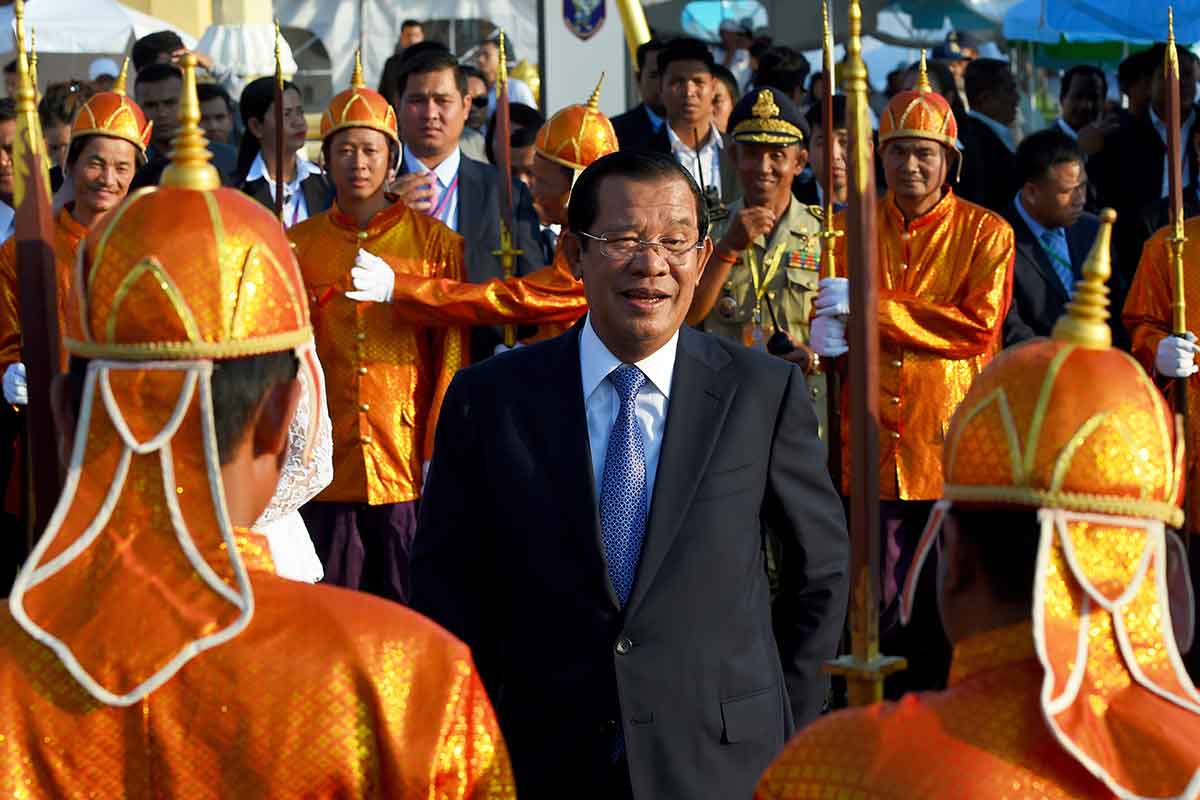Cambodia said Monday that banned opposition members may be allowed back into political life and shuttered media outlets could reopen as the European Union (EU) considers pulling a trade deal the country is loath to lose.
Numerous activists, journalists and government critics were released from jail in the months after strongman Hun Sen's Cambodian People's Party won all parliamentary seats in July elections held without the main opposition party.
But the concessions did not deter the EU from threatening in October to suspend trade benefits in the wake of the vote – a move that would cripple the country's billion-dollar garment industry, its largest formal employer.
Though Hun Sen has balked at the idea that international pressure can force his hand, analysts say the Cambodian leader is in a tough spot with the EU and has to ease up on dissent to avoid losing the preferences.
The Supreme Court dissolved the Cambodia National Rescue Party (CNRP) in a ruling a year ago as Hun Sen homed in on critics before the vote, accusing the party's leader of attempting to overthrow the government.
More than 100 CNRP members were banned for five years from politics, and many fled the country or retreated from public affairs.
But Cambodia's Ministry of Foreign Affairs said in a statement that parliament was reviewing legislation allowing "individuals who were banned from politics to resume their political activities".
The decision was made in the spirit of national reconciliation and to broaden the democratic space, it said.
The statement did not mention the EU deal but said court cases involving unions could be expedited and news outlets like the feisty English-language Cambodia Daily could be allowed to return if it paid errant tax bills.
It added that US-backed Radio Free Asia, which also shut during escalating pressure on the media, was welcome to reopen its office.
Cambodia "cherishes promotion of freedom of press and freedom of expression", the ministry said.
Media advocates contend audits were used to pressure outlets to cease operations last year and plug up independent reporting before the election.
Reacting to all the proposed changes CNRP member Mu Sochua said that she "welcomes the news with caution".
Rights groups fear Cambodia is sliding towards authoritarianism with the help of China, which showers the government with loans and infrastructure while asking few questions about how Hun Sen runs the country.
The leader has been in power for 33 years using a mix of wily political gambits and networks of alliances in the army and police.
Monday's statement did not bring up Kem Sokha, the co-founder of the CNRP who was accused of treason during the crackdown and is now living under conditions that resemble house arrest.
National Assembly spokesperson Leng Peng Long told reporters he was not sure whether all 118 banned opposition members, including Kem Sokha, would be granted the right to come back to politics. - AFP
